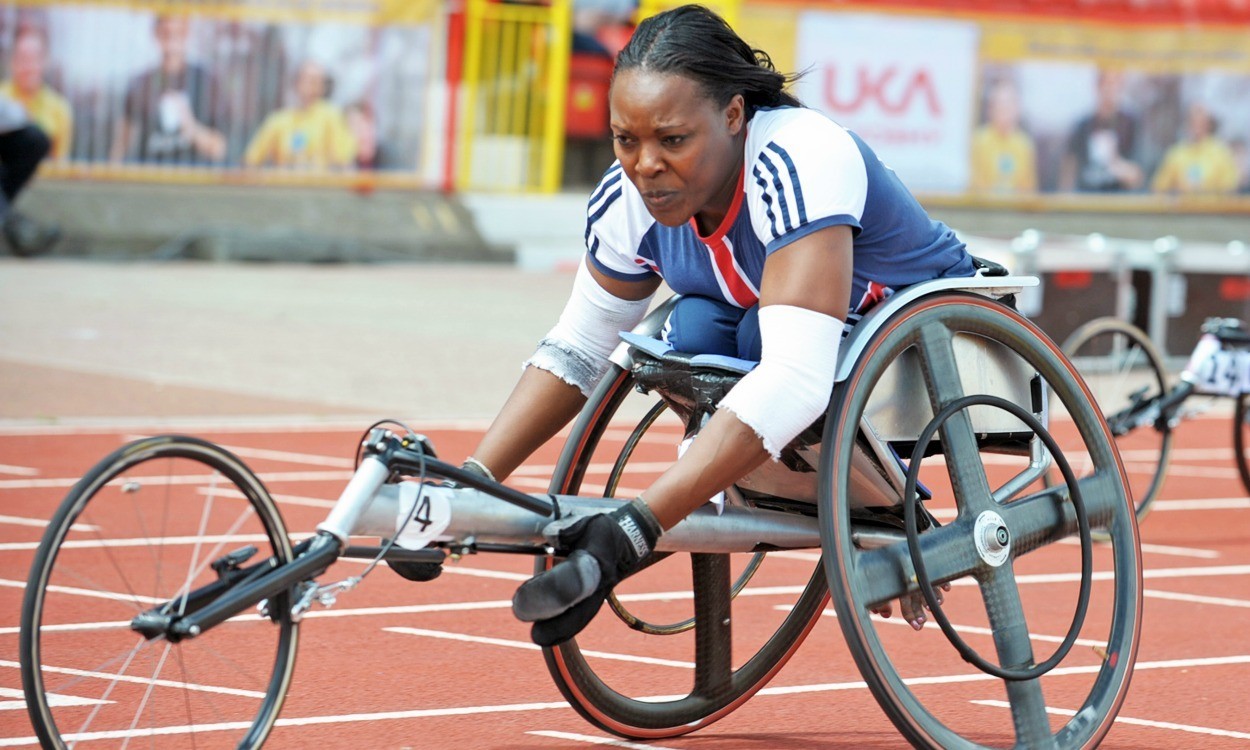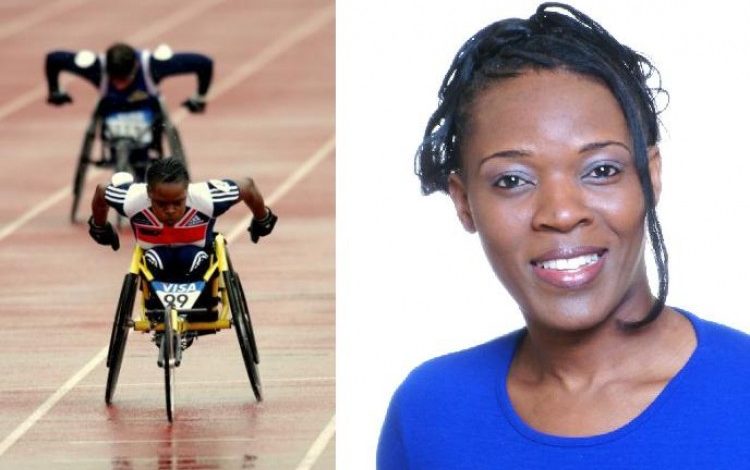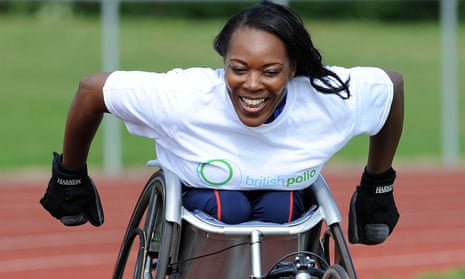Born in rural Kenya, paralyzed at two, and now one of Britain’s most inspiring athletes — Anne Wafula Strike’s life is a testament to strength, resilience, and unbreakable spirit.
In the quiet village of Mihuu in Bungoma, Kenya, a little girl was born who would one day redefine what strength means. Her name was Anne Wafula — a child of promise, laughter, and boundless energy. But fate had a different path prepared for her.
When she was just two years old, Anne contracted polio, a disease that left her paralyzed from below the chest. It was a devastating diagnosis for her family, who lived in a region where medical support and mobility aids were scarce. For many, this would have meant a lifetime of limitations. For Anne, it became the beginning of a revolution — one that started not on her feet, but on her will.
Childhood: Learning to Move in a World That Didn’t Move for Her
Growing up in rural Kenya, Anne faced daily challenges most people couldn’t imagine. Accessibility was nearly non-existent; schools were often far from home, and children with disabilities were sometimes hidden or pitied.
But Anne’s parents refused to let her spirit fade. They believed education would be her wings, even if her legs could not carry her. With their encouragement, she attended school, often crawling or relying on the kindness of others to help her get there.
“I didn’t want sympathy,” she once said. “I wanted opportunity.”
Even as a young girl, she refused to see herself as broken. Instead, she saw herself as different — but capable.
New Beginnings: A Journey to the UK
In April 2000, Anne’s life took a dramatic turn when she moved to the United Kingdom. The transition was not just geographical — it was transformative.
In Britain, she found access to medical care and rehabilitation at the Royal National Orthopaedic Hospital, where doctors diagnosed her with below T7 paralysis — a condition that meant she would never walk again. But Anne had already accepted that her life would not be defined by what she couldn’t do.
It was here, amid recovery and self-discovery, that Anne was introduced to a sport that would forever change her destiny — wheelchair racing.
Racing the Wind: A New Chapter of Power
In 2002, Anne first sat in a racing wheelchair. It was awkward, heavy, and strange at first — but then came the rush. The speed. The freedom. The realization that for the first time since childhood, she wasn’t just moving — she was flying.
Within two years, her natural talent and relentless drive propelled her to the world stage.
At the 2004 Athens Paralympic Games, Anne Wafula became the first-ever Kenyan wheelchair racer to represent her country. Competing in the T53 400m category, she didn’t just participate — she made history.
That moment wasn’t just about a race. It was about every child in Kenya who had been told they couldn’t dream. It was about showing the world that ability has no limits when courage leads the way.
A New Flag, A New Mission
In 2006, Anne became a British citizen and soon after joined Team GB, representing her new home on the international stage. She was later reclassified to the T54 racing category and continued to compete as one of Britain’s most determined Paralympic athletes.
Her performances inspired thousands, but her voice — calm, articulate, and fierce with conviction — reached even further.
Anne wasn’t just an athlete; she became an advocate — fighting for equality, accessibility, and dignity for people with disabilities across the UK and beyond.
The Author and the Advocate
In 2010, Anne’s autobiography, In My Dreams I Dance, was published by HarperCollins. The book chronicled her incredible journey — from a Kenyan village to the global stage — and captured hearts across the world.
Her story won her the BBC’s “My Story” competition, recognizing her as one of the most inspiring voices in Britain.
Anne’s writing wasn’t just about her life; it was about empowerment. “Dreams,” she wrote, “don’t come with legs. They come with courage.”
In 2013, her story was featured as the final chapter in Paul Stenning’s book Success – By Those Who’ve Made It, alongside world-renowned figures and celebrities. Stenning said her story was placed last because it was “the most powerful — the greatest example of what success truly means.”
Recognition and the Royal Honour
In 2014, Anne Wafula Strike’s work and influence were formally recognized when she was appointed Member of the Order of the British Empire (MBE) for her services to disability sport and charity.
Standing before dignitaries, she accepted the medal not just for herself but for every person who had ever been underestimated.
“I was once a little girl crawling on the ground in Kenya,” she said in an interview. “Now I stand before the Queen. That is the power of possibility.”
A Moment of Injustice — and a Voice That Spoke for Many
In January 2017, Anne made headlines for a different reason.
While traveling on a CrossCountry train, she found herself in distress when the disabled-access toilet was out of order. Unable to reach another in time, she was forced to urinate into her clothing.
Rather than staying silent, Anne spoke out — not for sympathy, but for change. She publicly criticized the railway company for its lack of accessibility and dignity for disabled passengers.
Her courage in sharing that deeply personal moment sparked national debate, forcing companies and lawmakers to confront the real challenges faced by people with disabilities every day.
A Mother, a Mentor, a Movement
Beyond the medals and titles, Anne is also a mother — to her son Timothy, whom she shares with her husband, Norman Strike.
Her relationship with her son is central to her strength. “When I look at him, I’m reminded that life is not about what you lose,” she says. “It’s about what you build with what you have left.”
Anne continues to mentor young athletes, advocate for inclusion, and champion the rights of women and people with disabilities around the world.
In 2020, she was appointed as a Special Envoy to the Commonwealth by Secretary-General Patricia Scotland, recognizing her as one of the most influential voices in global advocacy for equality and inclusion.
Legacy: More Than a Racer
Anne Wafula Strike’s legacy isn’t just carved on the tracks of Paralympic stadiums. It lives in the classrooms where disabled children now believe in their potential. It lives in boardrooms where accessibility is no longer an afterthought. It lives in hearts that have learned from her courage that limits are illusions.
Her journey from the dusty roads of Kenya to the grand stages of Britain is more than a personal victory — it’s a universal reminder that resilience can turn pain into purpose.
She once said,
“I may not walk, but I have climbed mountains. I may sit, but I rise every day.”
And rise she does — not just for herself, but for millions who now believe that with courage, every barrier can become a bridge.





